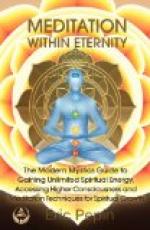Cosmic consciousness bestows a bliss that is past all words to describe and it also quickens the sympathies and attunes the soul to the vibrations of the heart-cries of the struggling evolving ones who are still travailing in the pains of the new birth. We must be willing to endure the suffering in order that we may realize the joy; not because joy is the reward for suffering, but because it is only by losing sight of the personal self that we become aware of that inner Self which is immortal and blissful; and when we become aware of the reality of that inner Self, we know that we are united with the all, and must feel with all.
It would be impossible in one volume to enumerate all the poets who have given evidence of supra-consciousness. As has been previously pointed out, all true poets are at least temporarily aware of their dual nature—rather, one should say, the dual phases of their consciousness. Many, perhaps, do not function beyond the higher planes of the psychic vibrations, but even these are aware of the reality of the soul, and the illusion of the sense-conscious, mortal life.
Dante; the Brownings; Shelley; Swinbourne; Goethe; Milton; Keats; Rosetti; Shakespeare; Pope; Lowell—where should we stop, did we essay to draw a line?
WORDSWORTH
Wordsworth, the poet of Nature has given us in his own words, so clearly cut an outline of his Illumination, that we can not resist recording here the salient points which mark his experience as that of cosmic consciousness, transcending the more frequent phenomenon of soul-consciousness and its psychic functions.
Wordsworth’s Ode to immortality epitomizes the lesson of the Yoga sutras—out of The Absolute we come, and return to immortal bliss with consciousness added. Wordsworth also affords an excellent example of our contention that cosmic consciousness does not come to us at any specific age or time. Wordsworth distinctly says that as a child he possessed this faculty, as for example his oft-repeated words, both in conversation and in his biography:
“Nothing was more difficult for me in childhood than to admit the notion of death, as a state applicable to my own being. It was not so much from feelings of animal vivacity that my difficulty came, as from a sense of the indomitableness of the spirit within me. I used to brood over the stories of Enoch and Elijah, and almost to persuade myself that, whatever might become of others, I should be translated, in something of the same way, to heaven. With a feeling congenial to this, I was often unable to think of external things as having external existence, and I communed with all that I saw as something not apart from, but inherent in, my own immaterial nature. Many times while going to school have I grasped at a wall or tree, to recall myself from this abyss of idealism to the reality.”
In later life, Wordsworth lost the realization of this supra-consciousness, in what a commentator calls a “fever of rationalism”; but the power of that wonderful spiritual vision, pronounced in his youth, could not be utterly lost and soon after he reached his thirtieth year, he again becomes the spiritual poet, fully conscious of his higher nature—the cosmic conscious self.




